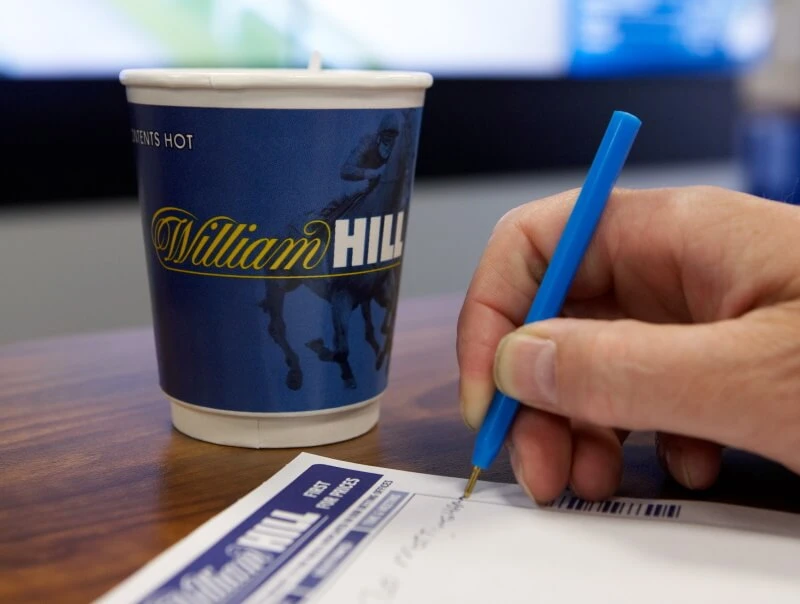US and online growth fail to offset retail declines for William Hill in Q3

For the 13 weeks to 29 September, William Hill said though total group revenue fell, all divisions performed well, given the current circumstances surrounding the novel coronavirus (Covid-19) pandemic.
The operator benefitted from the return of major sporting leagues and events following their Covid-19 suspensions. However, it added, as fixtures are out of step with prior years and events taking place behind closed doors, results have been more unpredictable.
This, the bookmaker said, contributed to volatile gross win margins, something it expects to continue into Q4 and potentially beyond.
“We are very pleased with the trading performance of the group, which has been borne out of the commitment, resilience and hard work of our teams across the business, and I could not be prouder of them,” chief executive Ulrik Bengtsson said.
Looking at individual divisions’ performances, online revenue was up 4% year-on-year, with the contribution from the British market rising 4%, and international operations 6%.
Gaming net revenue from online was up 8% year-on-year in Q3, with the amount spent on sports betting also rising 3%.
In Great Britain, William Hill rolled out a number of new features including a revamped betslip, the first significant update of its offering in the country in five years. This was introduced before the start of the new English Premier League season in September.
Its international online offering was also strengthened, with an updated version of the Mr Green-branded live casino, which the operator said offers an improved player experience across multiple regions.
The bookmaker also noted that its international online segment could be set for further growth, should it secure online sports betting and igaming licences in Germany. While the operator was not among the first betting licensees, it is in the process of applying, and can offer online casino in the market under the transition period that began last week.
Taking into account a multi-brand approach and returning advertising capabilities, the bookmaker said earnings before interest, tax, depreciation and amortisation (EBITDA) contribution from Germany for 2021 will be reduced by around £10m (€11.0m/$13.0m).
However, despite online growth, the operator’s retail business continued to struggle. Revenue for the division fell 2% on a like-for-like basis, excluding sites permanently closed in the prior and current years.
Gaming net revenue from retail was up 2% on last year, but sports betting spend fell 4%.
Betting shops in the UK were permitted to reopen from 15 June, with William Hill having staged a phased reopening of its estate, operating 1,414 shops during the period. This came after the operator decided against reopening 119 shops following the Covid-19 shut-down.
The operator is now looking to closely align its retail and online experiences, to offer customers a seamless experience across both channels.
This resumption of retail operations, coupled with efforts to preserve cash and protect liquidity early in the pandemic, meant the business has committed to repaying £24.5m of Coronavirus Job Retention Scheme funds from the government.
However, recent announcements regarding regional lockdowns in the UK, as well as continued restrictions on Scottish shops, could impact performance into Q4, William Hill warned.
Around 10% of its retail estate is located in areas currently classed as ‘very high’ risk in the government’s three-tier Covid-19 rating system, under which betting shops are forced to close.
William Hill said the closure of 100 shops for four weeks would reduce EBITDA by around £2m, excluding the benefit from job support schemes.
Turning to the US, William Hill said that in-person wagering was slower to resume, as major league sports such as Major League Baseball and the National Basketball did not return until late July.
However, net revenue in the US increased by 10% year-on-year, with gaming net revenue up by more than 100%, and sportsbook wagers rising 55%.
The bookmaker noted a number significant developments in the US, including opening sportsbooks in Colorado, Illinois, Michigan and Washington D.C. during Q3, as well as Pennsylvania this month.
The operator’s odds will be promoted on ESPN, thanks to its partner – and soon owner – Caesars Entertainment’s deal with the Disney-owned broadcaster.
Eldorado Resorts’ acquisition of Caesars, meanwhile, has given William Hill scope to roll out retail sportsbooks in all properties owned by the enlarged business.
“We have moved the company forward with our relentless focus on our customers, enhancing the competitiveness of our product, and maintaining player safety as one of our highest priorities,” Bengtsson said.
“We have reinvigorated the leadership team and they, in turn, have empowered their teams to deliver on our plans.”
In terms of year-to-date performance, group revenue for the 39 weeks to 29 September was down 25% on a year-on-year basis.
Online revenue was up 2%, though this was primarily down to 14% growth from international online activities, with UK revenue down 4%.
Retail revenue fell 35%, with William Hill having bit hit hard by Covid-19 closures, and it was similar for its operations in the US, where revenue was down 14% year-on-year.
